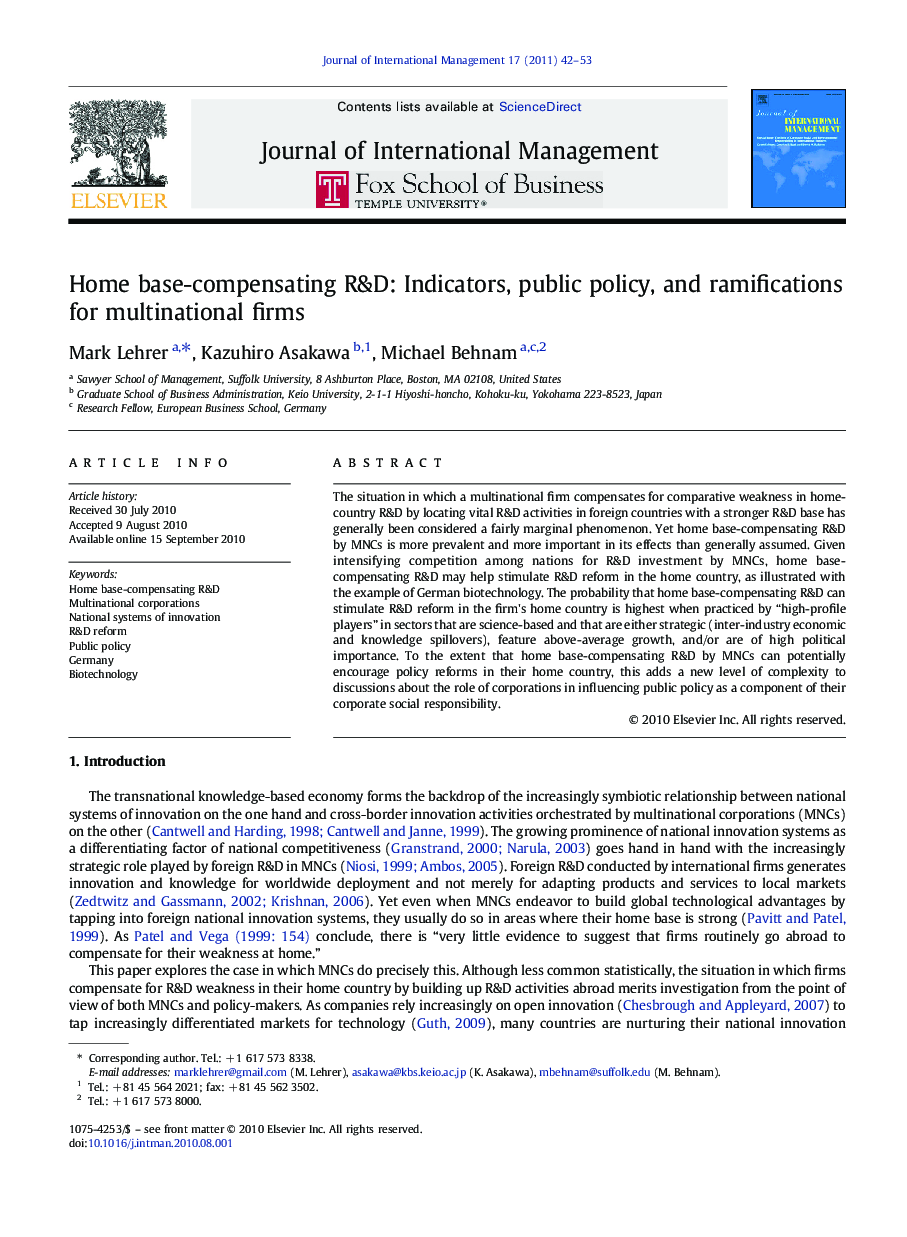| Article ID | Journal | Published Year | Pages | File Type |
|---|---|---|---|---|
| 1020574 | Journal of International Management | 2011 | 12 Pages |
The situation in which a multinational firm compensates for comparative weakness in home-country R&D by locating vital R&D activities in foreign countries with a stronger R&D base has generally been considered a fairly marginal phenomenon. Yet home base-compensating R&D by MNCs is more prevalent and more important in its effects than generally assumed. Given intensifying competition among nations for R&D investment by MNCs, home base-compensating R&D may help stimulate R&D reform in the home country, as illustrated with the example of German biotechnology. The probability that home base-compensating R&D can stimulate R&D reform in the firm's home country is highest when practiced by “high-profile players” in sectors that are science-based and that are either strategic (inter-industry economic and knowledge spillovers), feature above-average growth, and/or are of high political importance. To the extent that home base-compensating R&D by MNCs can potentially encourage policy reforms in their home country, this adds a new level of complexity to discussions about the role of corporations in influencing public policy as a component of their corporate social responsibility.
